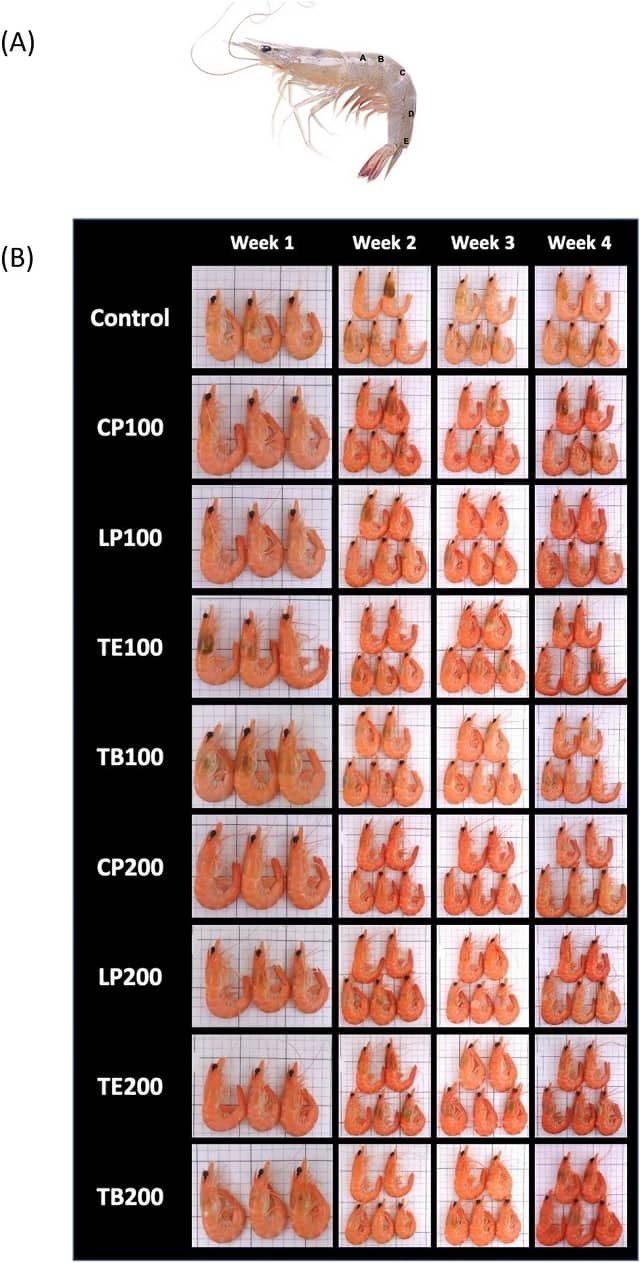
Tilapia farming has experienced significant growth in recent years, driven by its high market demand and economic value. A critical aspect of tilapia farming is sex control, as it enables the production of all-male populations, which grow faster and yield better meat quality.
A recent study published in the International Journal of Agricultural and Biological Engineering (IJABE) by researchers from Government College University Faisalabad compared the effectiveness of three sex-reversal agents: 17α-methyltestosterone (MT), “Papaya” (Carica papaya) seed meal (PSM), and common carp testes (CCT) in tilapia (Oreochromis niloticus) sex reversal, hematological parameters, gonadal histology, enzymatic activity, and overall growth.
The Challenge of Sex Control in Tilapia Farming
One of the key challenges in tilapia aquaculture is controlling the sex ratio of the fish population. All-male populations are preferred due to their faster growth rates and larger sizes, which lead to higher yields and economic benefits.
Traditionally, synthetic hormones such as 17α-methyltestosterone (17α-MT) have been used to induce sex reversal in tilapia. However, concerns over environmental impact and potential health risks associated with synthetic hormones have driven the search for more sustainable and environmentally friendly alternatives.
The Promise of Natural Agents for Sex Control
Recent research has focused on exploring natural substances that can effectively control sex differentiation in tilapia. One promising candidate is papaya seed meal (PSM). PSM contains several bioactive compounds, including benzyl isothiocyanate (BITC), which has been shown to have endocrine-disrupting effects, leading to sex reversal in fish.
Dual Benefits of Papaya Seed Meal
In addition to its sex-reversal properties, PSM offers several other advantages for tilapia aquaculture. It can improve growth performance, increase feed efficiency, and stimulate the fish’s immune system. By incorporating PSM into fish diets, aquaculturists can potentially reduce their reliance on synthetic hormones and enhance the overall sustainability of their operations.
Fish Testes as a Natural Sex Control Agent
Another natural approach for sex control in tilapia involves the use of fish testes. Fish testes are a rich source of natural androgens, which can induce masculinization in fish. By incorporating fish testes into fish diets, aquaculturists can achieve all-male populations without relying on synthetic hormones.
The Study
The study involved a 90-day trial with 560 tilapia fry distributed across seven tanks, including a control group and six treatment groups. Fish were fed a control diet or experimental diets containing different levels of MT, PSM, or CCT for 30 days, followed by a control diet for the remaining 60 days.
Potential of Natural Alternatives
Results showed that MT induced the highest male ratio, with 85% and 75% males in the T2 and T1 groups, respectively. However, PSM and CCT improved tilapia growth and carcass composition without adverse effects on hematological parameters.
Stay Always Informed
Join our communities to instantly receive the most important news, reports, and analysis from the aquaculture industry.
Gonadal Deformities
Histological analysis revealed gonadal deformities in MT and PSM treatments, which may lead to sterility. The gonadosomatic index (GSI) was also reduced in the natural treatments compared to synthetic treatments.
In contrast, protease and amylase activities were higher in PSM and CCT than in MT, indicating improved food digestion and absorption.
Benefits of Natural Alternatives
Natural alternatives such as PSM and CCT offer several advantages over synthetic hormones:
- Environmentally Friendly: Natural sources are biodegradable and have minimal environmental impact, reducing concerns about water contamination and ecosystem disruption.
- Economic Feasibility: PSM and CCT are often more affordable than synthetic hormones, making them a cost-effective option for tilapia farmers.
- Improved Growth and Feed Efficiency: Studies have shown that natural sex-reversal agents can enhance tilapia growth and feed utilization, leading to higher production yields.
- Reduced Gonadal Deformities: Natural alternatives have a lower incidence of gonadal deformities compared to synthetic hormones, resulting in healthier and more productive fish.
Implications for Tilapia Farming
The study highlights the potential of PSM and CCT as biodegradable, locally available, and eco-friendly alternatives to synthetic hormones for sex reversal in tilapia. Natural sources of sex-reversal agents, such as plant and animal byproducts, are preferable to synthetic sources due to their lower cost and ability to control prolific breeding in tilapia.
The findings of this study have significant implications for the tilapia farming industry, which increasingly seeks sustainable and environmentally friendly practices. By adopting natural sex-reversal agents, farmers can reduce their dependence on synthetic hormones and minimize the environmental impact of their operations.
Conclusion
This study demonstrates the potential of natural sex-reversal agents like PSM and CCT as effective and sustainable alternatives to synthetic hormones in tilapia farming. The findings underscore the importance of exploring natural sources of sex-reversal agents and their potential applications in aquaculture.
Further research is needed to optimize the use of natural sex-reversal agents and explore other potential sources. By adopting sustainable practices, the tilapia aquaculture industry can ensure its long-term viability and meet the growing global demand for fish protein.
Contact
Farkhanda Asad
Government College University
Allama Iqbal Road, Faisalabad
Pakistan 38000.
Tel: +92-041-9201206
Email: farkhanda.asad@gcuf.edu.pk.
Reference (open access)
Jamal R, Asad F, Naz S, Hussain S M. Comparative assessment of natural and synthetic reproductive inhibitors in Oreochromis niloticus. Int J Agric & Biol Eng, 2024; 17(5): 284-292.
Editor at the digital magazine AquaHoy. He holds a degree in Aquaculture Biology from the National University of Santa (UNS) and a Master’s degree in Science and Innovation Management from the Polytechnic University of Valencia, with postgraduate diplomas in Business Innovation and Innovation Management. He possesses extensive experience in the aquaculture and fisheries sector, having led the Fisheries Innovation Unit of the National Program for Innovation in Fisheries and Aquaculture (PNIPA). He has served as a senior consultant in technology watch, an innovation project formulator and advisor, and a lecturer at UNS. He is a member of the Peruvian College of Biologists and was recognized by the World Aquaculture Society (WAS) in 2016 for his contribution to aquaculture.




